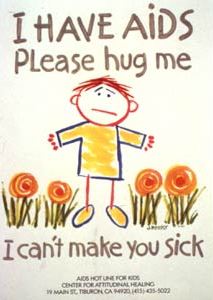HIV-positive women in rural Cambodia still challenge discrimination
Chhay Sophal
 Phnom Penh (26 Feb 2014): Many Cambodian Women Living with HIV (WLHIV) in provinces are still facing with serious stigma and discrimination from their families, community and society.
Phnom Penh (26 Feb 2014): Many Cambodian Women Living with HIV (WLHIV) in provinces are still facing with serious stigma and discrimination from their families, community and society.
Ven Chanthou, a steering committee member of Cambodian Community of Women Living with HIV (CCW), said that WLHIV have so far received stigma and discrimination from not only their families but also from health workers.
She said that her CCW had found a few cases in Takeo province, south of Phnom Penh. “When health workers know that a woman living with HIV is pregnant, they often blame the woman. Despite many campaigns to raise awareness of reduction of discrimination against people living with HIV, the rural people, even school teachers and health workers still discriminate,” she said.
According to a survey of Cambodian People Living with HIV Network conducted in 2010, among 394 People Living with HIV (PLHIV) who were interviewed, 39% experienced in physical harassment or threats due to their HIV status.
These women were about twice as likely to suffer from psychological pressure from their spouses or partners (45%) or be subjected to gossip (31%), the survey report shows.
According to a report obtained by New Youth on Tuesday from UNAIDS office in Cambodia, 14% of interviewed WLHIV who were pregnant in the past year had been strongly advised to terminate their pregnancy by a health professional; 10% of interviewed PLHIV had been denied access to family planning and Sexual and Reproductive Health service; 79% had been advised by health staff not to have any children; and 19% had been strong advised by health staff to use permanent sterilization.
On 1 March 2014, HIV/AIDS policy makers, workers, and activists as well as donors around the globe will celebrate “Zero Discrimination Day” to focus on the right of everyone to live in a full and productive life with dignity.
Citing that stigma and discrimination can affect people in many ways in their lives, the Zero Discrimination Day is calling on everyone to “Open up, Reach out” to transform communities and move towards a world where everyone’s rights are respected, according to an information sheet from UNAIDS office in Cambodia.
It says that for the AIDS response, discrimination towards PLHA and key populations at higher risk of HIV is not an only human rights issue but often also a major obstacle to expanding their access to HIV Services.
Dr. Teng Kunthy, Secretary General of the National AIDS Authority, said last November that the Most at Risk Populations (MARPs) — Men Who Have Sex with Men (MSM) & Tran Gender (TG), Entertainment Workers (EWs)/Sex Workers, and Injected Drug Users (IDUs) – were facing with stigma and discrimination from society, communities and families and such attitudes are the main roots for HIV/AIDS transmission among them.
According to a projection report of the National Center for HIV/AIDS, Dermatology and STD in 2011, Cambodia currently is still facing a high HIV new infection of around 1,200 people a year, and about 80 percent has transmitted through sexual intercourse cases while the death rate related to HIV/AIDS is about 2,200 people per year.
Cambodia currently has an estimated total number of about 75,000 PLHIV. Cambodia is committing that in 2020, it will achieve “3.Zero” policy – Zero to New HIV infection, Zero to AIDS-related death, and Zero to Discrimination.

